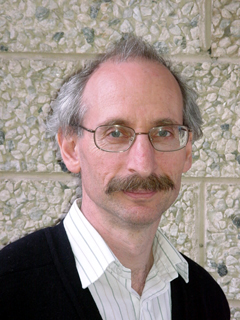Professor Leslie S. Smith
The article Grand Challenges: Building a synthetic sensory-motor system said
“The real grand challenge for life on Earth is, as it has always been, to conquer new ecological niches. And this challenge has been taken up successfully from the seas to the surface of the earth, to the skies. But nature’s evolutionary techniques imply a gradual colonisation of new ecologies: and there are limits to the ecological niches that traditionally evolving living entities can colonise. Life has reached these limits: there may be other colonisable places in the Universe, but the vast emptiness of space between here and there presents an unbridgable gap for traditional evolution.Yet there is energy available from sunlight within some parts of space to support life, though the distances between the energy sources is very large. We can build electronic systems which can survive these low energy periods, and perhaps transport them to other stellar systems. But what is gained by simply transporting automata? Is this ‘the conquering of space’?
One possible solution is building truly enormous spaceships with complete ecologies, to travel space. Unfortunately, the time problem remains intractable: the science-fiction scenario of generations upon generations living on such ships does not seem attractive unless one is fleeing from some cataclysmic event on Earth. Rather than waiting for such events, let us consider an alternative…”
Professor Leslie S. Smith is author of this article and head of the Computational Intelligence (was Natural/Neural Computing) Research Group at the University of Stirling. His primary interests are in early auditory processing, spike-based computing and the interconnection of real (cultured) neurons and electronics. He is also Chair of the IEEE UKRI Neural Networks Chapter.
Leslie authored Towards robot audition and A Neurally Motivated Technique for Voicing Detection and F0 Estimation for Speech, coauthored Precision constrained stochastic resonance in a feedforward neural network, Cost minimisation and Reward maximisation. A neuromodulating minimal disturbance system using anti-hebbian spike timing-dependent plasticity, and Robust sound onset detection using leaky integrate and fire neurons with depressing synapses, and coedited Neuromorphic Systems: Engineering Silicon from Neurobiology and Neural Computation and Psychology: Proceedings of the 3rd Neural Computation and Psychology Workshop. Read the full list of his publications!
He earned his B.Sc. from Glasgow University in 1973 and his Ph.D. from Glasgow University in 1981. He is inventor of patent Onset/offset coding for interpretation and segmentation of sound, UK Patent GB 2 299 247 B.
